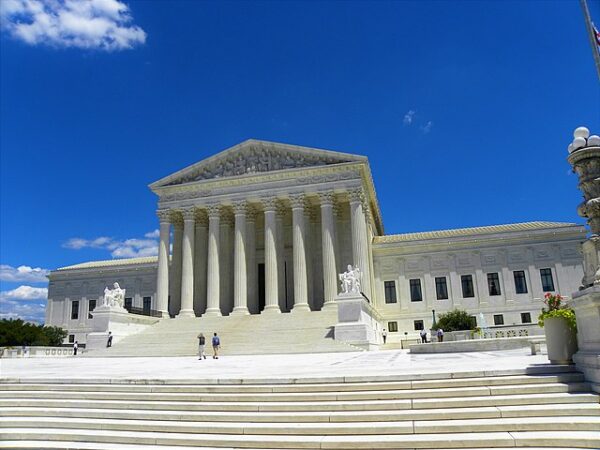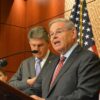In a move that temporarily preserves the ability of private groups to bring challenges under the Voting Rights Act, the Supreme Court on Thursday reportedly blocked a controversial lower court decision that would have barred such lawsuits in seven states.
While the ruling is not final, it signals the justices’ intent to weigh the broader implications of how voting rights cases are litigated in America.
The case stems from a lawsuit filed by two Native American tribes who argue that North Dakota’s legislative maps violate Section 2 of the Voting Rights Act by limiting their ability to elect preferred candidates.
The 8th U.S. Circuit Court of Appeals had ruled, in a split 2–1 decision, that private parties—whether tribal groups, civil rights organizations, or individual voters—lack the authority to sue under the provision. That decision broke with decades of precedent and ignited fierce legal debate.
The Supreme Court, in an unsigned order, halted that ruling for now, leaving the question unresolved but allowing challenges to proceed as appeals continue.
The three dissenting justices—Clarence Thomas, Samuel Alito, and Neil Gorsuch—offered no written opinions, but their dissent suggests a willingness to revisit long-standing assumptions about federal election law and the role of private actors in enforcing it.
At the center of the debate is Section 2 of the Voting Rights Act, a provision long viewed as a bulwark against racial discrimination in redistricting and other voting practices.
For nearly 60 years, private citizens and organizations have brought the vast majority of challenges under this law, often stepping in where the federal government has declined to act.
But the 8th Circuit’s decision, echoing a similar ruling in an Arkansas case, questioned whether Congress ever intended to grant that authority to private groups.
North Dakota, defending its maps, argued that the tribes’ assumptions lacked legal grounding. “The fact that Section 2’s private enforceability was not previously challenged does not mean Congress spoke with the clarity needed to create a privately enforceable right,” the state argued in court filings, adding that prior courts “never squarely addressed” the question now at hand.
The tribes, joined by the NAACP Legal Defense Fund, framed the lower court ruling as a radical departure from decades of bipartisan legal consensus. “They contradict every circuit court and three-judge district court—all unanimous, unlike the divided decision below—ever to have considered the question of private enforcement,” the tribes wrote.
Conservatives see an opportunity to return questions of voting rules to the states, where elected legislatures—not unelected judges and activist litigants—have the constitutional authority to draw maps and set election procedures.
With challenges to voter ID laws, drop box regulations, and ballot access increasingly driven by third-party groups, critics argue that the courts have become too central to settling disputes better left to voters and lawmakers.
The Supreme Court’s ruling leaves the issue unresolved, but it sets the stage for a high-stakes review next term, when the justices will rehear a related redistricting case out of Louisiana.
Legal observers say the Court may finally confront whether private groups have overstepped in claiming the right to shape election law from the outside.



